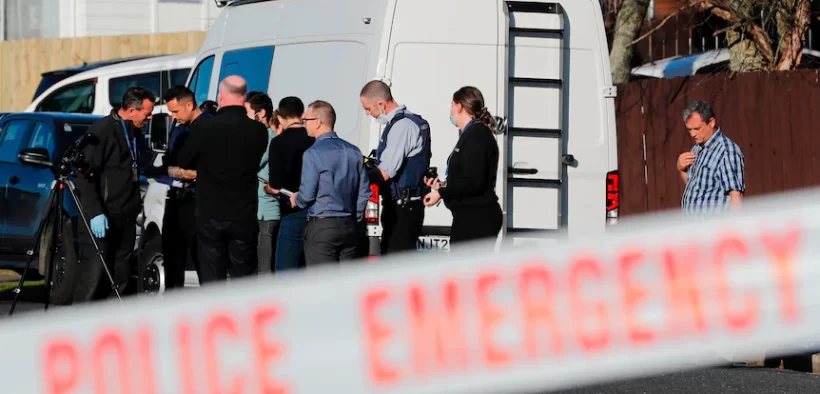New Zealand family discovers two dead children hidden inside second-hand suitcases

Police say the children had been dead for a number of years.(AP: Dean Purcell/New Zealand Herald)
A New Zealand family who bought some abandoned goods from a storage unit got home with their purchases and discovered the bodies of two children hidden in two suitcases.
Key points:
- Police say the children were between five and 10 years old and had been dead for a number of years
- A family had purchased the suitcases in an online auction and took them home last week
- Detectives say the children have relatives in New Zealand
The children were between five and 10 years old, had been dead for a number of years, and the suitcases had been in storage for at least three or four years, police said.
Detective Inspector Tofilau Faamanuia Vaaelua said the investigation was in its early stages but would be rigorous.
“This includes establishing where, when and how,” Inspector Vaaelua told journalists in Auckland.
The family had purchased the personal and household items in an online auction and hauled them home last week.
Inspector Vaaelua emphasised they had nothing to do with the deaths and had been understandably distressed by their discovery.
Police first set up a crime scene at the Auckland home last week and opened a homicide investigation, but had declined to go into the details of the case until Thursday.
Inspector Vaaelua said identification procedures for the children were ongoing but they have relatives living in New Zealand.
He also said police had contacted Interpol and overseas policing agencies — a possible indication police might believe the suspect or suspects are now living abroad.
“The investigation team is working very hard to hold accountable the person or persons responsible for the deaths of these children,” Inspector Vaaelua said.
He said it was a difficult case for the investigative team.
“No matter how many years you serve and investigate horrific cases like this, it’s never an easy task,” he said.
“I myself am a parent of young kids. But we have a job to do.”
AP











